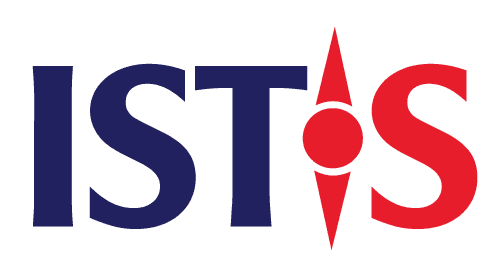Information technology consulting plays an essential role in helping organizations align technology with long-term goals. It supports decisions that shape everything from infrastructure and operations to customer experience and risk management. Rather than focusing solely on technical fixes, consultants work across departments to advise on systems, structures, and solutions that make businesses more adaptive and resilient.
As organizations deal with evolving challenges—rising security risks, complex compliance demands, and the pressure to innovate—IT consultants provide clarity. They help leaders assess what technologies are relevant, how they can be integrated into existing operations, and which solutions offer the greatest return on investment. Their insights support better decisions in areas like cloud adoption, cybersecurity posture, automation, and analytics strategy.
Strong consulting partnerships often lead to improved agility and better use of internal resources. Advisors bring structured thinking, up-to-date industry knowledge, and a view informed by working across sectors. They offer guidance on building future-ready digital infrastructure, developing IT governance models, and navigating vendor ecosystems.
The consultant’s role is evolving from technical advisor to strategic partner. This shift reflects growing expectations around value delivery, long-term alignment, and measurable business impact. Many firms now engage consultants in a more continuous capacity—seeking feedback during key milestones, using advisory support to train internal teams, and co-developing frameworks for transformation.
In this environment, IT consulting has become a driver of operational focus and strategic momentum. It supports better coordination between technology investments and business priorities, helping organizations stay relevant in competitive and fast-moving markets.
Core Services in Information Technology Consulting
At the heart of information technology consulting lies a diverse set of services designed to guide organizations through critical decisions about their digital foundations. These services are not one-size-fits-all; they’re built around the specific goals, operational context, and technical maturity of each client. Among the most requested offerings is IT strategy consulting, where advisors work with leadership to define priorities, set investment roadmaps, and align technology planning with broader organizational ambitions.
Another core area is infrastructure assessment. Consultants evaluate legacy systems, cloud readiness, network reliability, and overall scalability. These assessments help pinpoint inefficiencies, potential security vulnerabilities, and performance gaps, providing a clear path for modernization. Alongside infrastructure work, cybersecurity consulting has become a non-negotiable service. Advisors assess risks, recommend frameworks such as NIST or ISO, and design threat mitigation strategies that are both realistic and sustainable.
Enterprise architecture consulting plays a vital role in creating system cohesion. Consultants define how applications, data, and technologies should interact to support workflows and decision-making across departments. When organizations face key software decisions, such as adopting a new ERP or CRM system, software selection consulting provides objective evaluation and vendor guidance. From requirements gathering to RFP management, this service reduces costly implementation errors.
Project oversight or IT program management is another major offering. Consultants are brought in to steer complex digital initiatives, ensure deadlines are met, risks are managed, and stakeholder expectations remain aligned. Their presence adds a layer of accountability and often accelerates delivery.
Crucially, today’s IT consulting is rarely confined to tech alone. Increasingly, firms integrate business consulting elements—helping clients reimagine customer journeys, adapt operating models, and measure impact across financial and human dimensions. By bringing together technical depth and organizational insight, consultants deliver more holistic transformation support.
This service mix reflects the expanding expectations placed on IT advisors. Clients are looking not only for expertise in technology, but also for guidance that supports change across the entire enterprise. Whether advising a global manufacturer or a growing nonprofit, consultants tailor solutions to meet specific sector challenges and maturity levels, offering both strategic direction and operational clarity.
Traits of Effective IT Consulting Firms
The most effective information technology consulting firms share a common set of qualities that extend beyond technical know-how. While expertise is essential, the true value of a consulting partner lies in their ability to adapt, communicate, and drive results that matter in both the short and long term.
Technical depth remains foundational. Leading firms maintain a strong bench of consultants with hands-on experience in modern architectures, cybersecurity frameworks, data infrastructure, and cloud ecosystems. These professionals are typically certified in relevant areas—such as AWS Solutions Architect, Certified Information Systems Security Professional (CISSP), or Project Management Professional (PMP)—ensuring that clients benefit from both practical and standardized knowledge.
However, deep expertise alone isn’t enough. The best consultants operate with vendor neutrality. They help clients evaluate solutions based on fit, functionality, and future scalability—not based on commission or resale arrangements. This objectivity builds trust and allows clients to make technology choices aligned with their needs, not with a consultant’s preferred ecosystem.
Agile methodologies are another hallmark. Effective IT consulting firms bring iterative thinking to the table, enabling organizations to test, learn, and pivot quickly. Rather than delivering static plans, these firms co-create solutions with clients, continuously refining them based on feedback and shifting priorities. This agile mindset is particularly valuable in fast-changing sectors where speed and adaptability often determine competitive edge.
Strong communication skills distinguish top consultants from technical contractors. From the C-suite to frontline teams, effective advisors know how to frame issues clearly, navigate conflicting interests, and translate complex systems into actionable decisions. They serve as bridges between technology and business—helping everyone pull in the same direction.
Another factor that’s often underestimated is industry specialization. A firm that understands the regulatory nuances of healthcare, or the operational intricacies of manufacturing, can deliver faster insights and more relevant recommendations. That domain knowledge enables better planning and reduces friction during implementation.
Equally important is cultural fit. Successful consulting engagements depend on mutual respect, shared values, and an understanding of how people prefer to work. Firms that embed into the organization’s rhythm—rather than impose rigid methods—tend to unlock more collaborative outcomes.
Finally, the most impactful firms are those that support ongoing innovation, not just isolated problem-solving. They stay engaged to help clients evolve with their markets, recommending ways to embed experimentation, update digital roadmaps, and build internal capacity for continuous change. By combining technical acumen with strategic foresight and human sensitivity, great IT consulting firms become long-term partners in transformation.
The Future of IT Consulting: Ecosystem Builders and Strategic Allies
Information technology consulting is undergoing a significant transformation. The traditional model—where consultants delivered reports and walked away—is rapidly giving way to a more dynamic, embedded approach. Today’s leading firms are evolving into ecosystem builders and long-term strategic allies, supporting clients not just in defining the future but in continuously adapting to it.
This shift is reflected in the move toward co-creation. Instead of prescribing off-the-shelf solutions, consulting teams are working alongside clients to build tailored systems that grow organically with the business. This means jointly developing platforms, sharing accountability for outcomes, and adjusting strategies as environments shift. It’s less about the consultant as an outsider and more about acting as an embedded force for innovation within the organization.
Platform thinking is also reshaping the consulting landscape. As enterprises become more interconnected, consultants are increasingly helping clients move beyond standalone systems and toward integrated ecosystems. Whether it’s through API strategies, cloud-native architecture, or data-sharing frameworks, the emphasis is on interoperability and long-term scalability—building the foundations for continuous value creation across partners, suppliers, and users.
AI-powered advisory services are becoming central to modern IT consulting. From predictive analytics to real-time scenario modeling, artificial intelligence enables more informed, data-driven decision-making at every stage. Consultants now use AI tools not only to improve operational efficiency but also to test strategic hypotheses, assess risk more accurately, and uncover opportunities that would have previously gone unnoticed. The result is a faster, smarter, and more proactive advisory experience.
At the same time, the rise of hybrid consulting teams is making delivery more flexible and responsive. These teams blend in-house client talent with external specialists, often distributed across time zones and disciplines. With the help of digital collaboration platforms, such teams can prototype solutions quickly, refine them through iteration, and deploy at scale—breaking down the old boundaries between planning and implementation.
This evolution is also blurring the line between strategy and execution. Where consultants once stopped at roadmap development, they are now increasingly involved in rollout, iteration, and optimization. As organizations face accelerating change, they need partners who not only see the big picture but can also help build and operate the engine that drives it.
Ultimately, the future of IT consulting lies in enabling resilient and adaptive organizations. In this new landscape, consultants are not just solving problems—they’re helping enterprises become more self-renewing, digitally fluent, and strategically aligned. Their influence goes beyond IT departments to shape how organizations learn, collaborate, and compete. The most valuable consultants are those who understand that the true currency of modern business is adaptability—and who equip their clients to thrive in an environment where the only constant is change.









